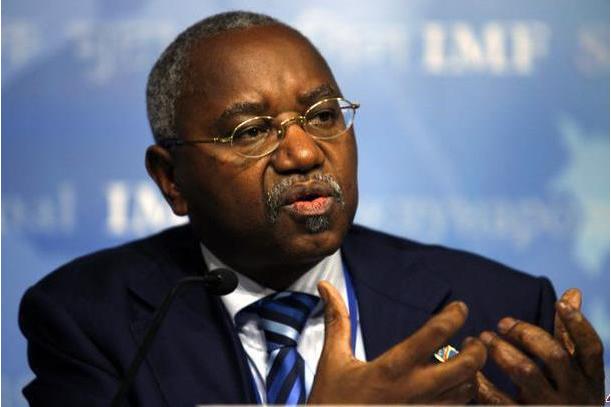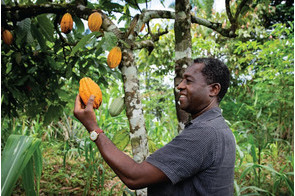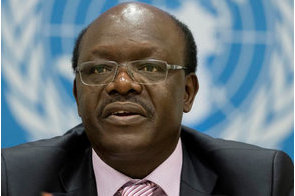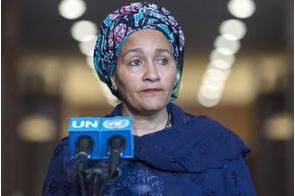As economic rivals invest in Africa, US shouldn’t sit on the sidelines

Summary
American policymakers must face the fact that China supplanted the U.S. as Africa’s leading trading partner in 2009 and continues to strengthen its economic, political and military ties to the continent.
President Obama has left the continent. During his historic and inspiring visit to Kenya and Ethiopia, he announced several new initiatives and U.S. investments to improve the security and economic situation in Africa. The question is whether this focused American attention will last for years to come.
One thing is for sure: while American interest in Africa has waxed and waned, Chinese interest in Africa has only grown. American policymakers must face the fact that China supplanted the U.S. as Africa’s leading trading partner in 2009 and continues to strengthen its economic, political and military ties to the continent.
Quadrupling over ten years, China-Africa trade grew to $210 billion in 2013, the last year for which complete statistics are available, far exceeding the $85 billion in U.S.-Africa trade. More than 2,000 Chinese enterprises are investing in Africa, for a total estimated investment of $20 billion in 2012. For its part, the European Union (EU) is negotiating free-trade agreements with countries in sub-Saharan Africa, while Japan and India are making inroads as well.
With so many countries enhancing their investment and influence in Africa, the U.S. should not sit on the sidelines. From my perspective as a former monetary policymaker in the Democratic Republic of Congo (DRC), I believe I speak for many Africans when I say that the U.S. is our preferred economic partner. And the nations of Africa have much to offer the U.S.
As the home of eight of the world’s fastest-growing economies, Africa is a major emerging market. While much of the world has been mired in recession, the continent’s economies have grown by more than 5 percent per year.
According to recent estimates, consumer spending in sub-Saharan Africa will rise from $600 billion in 2010 to an anticipated $1 trillion in 2020. With China leading the way, foreign direct investment tripled from $15 billion in 2002 to $46 billion in 2012.
While China engages emerging African markets, the U.S. presence seems to be receding even in longstanding investment destinations such as DRC. The DRC once hosted major U.S. corporations such as General Motors, Goodyear, Gulf Oil-Chevron and Citibank, where I headed DRC operations almost two decades ago.
But Citibank has downsized its operations in DRC, while Chevron sold 82 percent of its shares to a French corporation. Together, the U.S. and Canada account for only 5 percent of DRC’s international trade, trailing the EU’s 23 percent and China’s 21 percent.
In an important bright spot, Phoenix-based Freeport-McMoRan, one of the world’s largest producers of copper and gold, has become the largest foreign direct investor in DRC, with facilities valued at $3 billion.
The United States should encourage more companies to establish a presence in DRC and other sub-Saharan African countries by working with the Corporate Council for Africa, the Export-Import Bank (if the U.S. Congress renews its charter), the Overseas Private Insurance Corporation and other institutions. The recent renewal of the African Growth and Opportunity Act (AGOA), providing preferred access to U.S. markets for some African products, is an important step forward.
In addition, the U.S. should increase its investments in African nations’ infrastructure. Developing countries such as DRC need roads and railways that will allow our economy to grow, move, exchange and expand. Doing so will also improve access to health care and to education, two factors that are central to economic growth.
Some 600 million people – 70 percent of the population of sub-Saharan Africa – are without electricity. The Obama administration’s Power Africa initiative, which seeks to marshal over $1 billion in private investment for geothermal and wind projects, is also essential. With its tremendous waterways and rivers, DRC is well-positioned to participate in this initiative.
Unlike the colonial powers of the past and some economic powers of the present, the United States is admirably concerned with developing Africa’s human and natural resources. From American universities partnering with their African counterparts to First Lady Michelle Obama’s initiative to help educate African girls, the United States has much to contribute.
Expanding economic and educational ties with Africa will strengthen the security of the United States and the entire international community. With the continent confronting threats from terrorism to human trafficking and ethnic conflicts, economic growth will avert the hopelessness that feeds extremist violence and will offer an alternative to harmful activities of all kinds.
Obama has made strides to strengthen the American relationship with the continent, where his father served as an economic policymaker. He must not lose sight of his goals in Africa for the rest of his term, and his potential successors should offer ideas for further strengthening of U.S. ties with the continent, where so much of humanity’s history will be made.
Mulongo has served as governor of the Central Bank of the Democratic Republic of Congo (DRC), as well as president of the G24 of the International Monetary Fund, deputy governor for the DRC of the World Bank, and president of the African Central Banks Association. Source: The Hill
Related
-
Study shows AfCFTA can foster sustainable trade in biodiversity in Africa
In 2017, nearly $78 billion worth of goods with a biological origin were exported by members of the African Union, 3.5% of ...
-
Developing countries should push to end fishing subsidies to protect jobs – UNCTAD
Estimated at about $20 billion per year, the UN agency said harmful fishing subsidies enable industrial fishing fleets to ...
-
New rosewood permits issued by Nigeria to be internationally verified
Millions of rosewood logs were harvested and exported illegally from Nigeria when Amina J. Mohammed, the current Deputy ...








